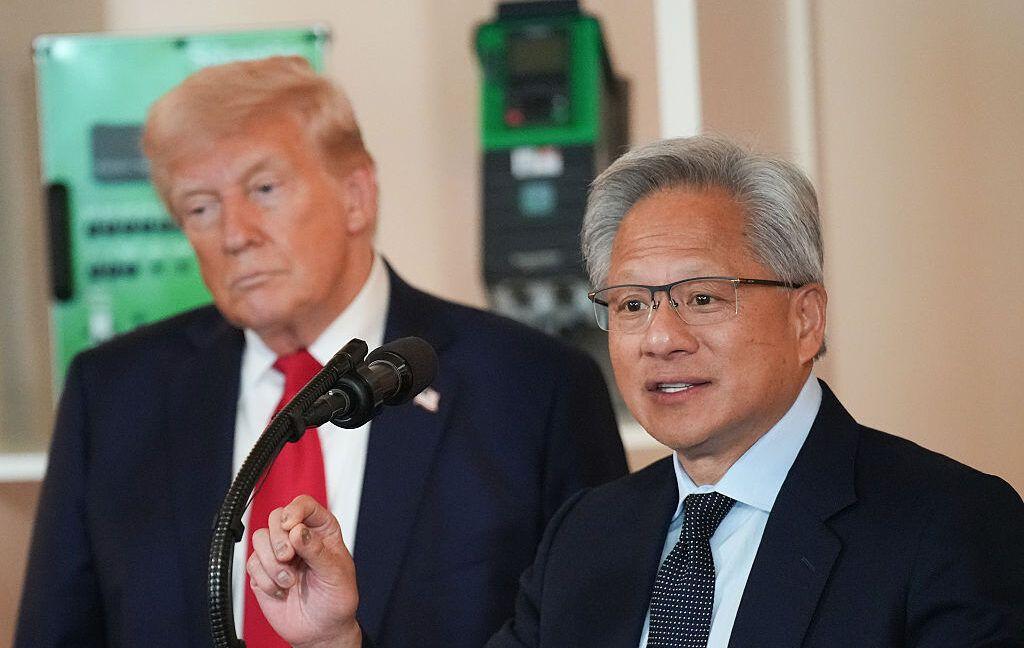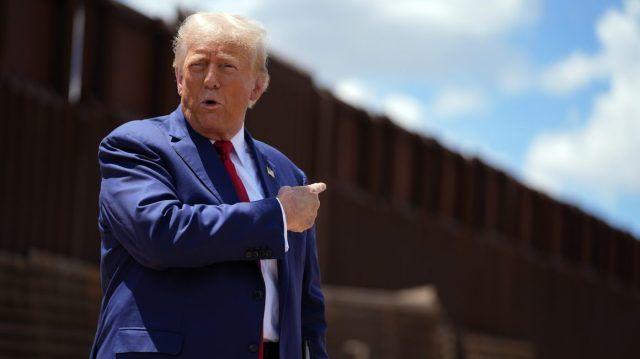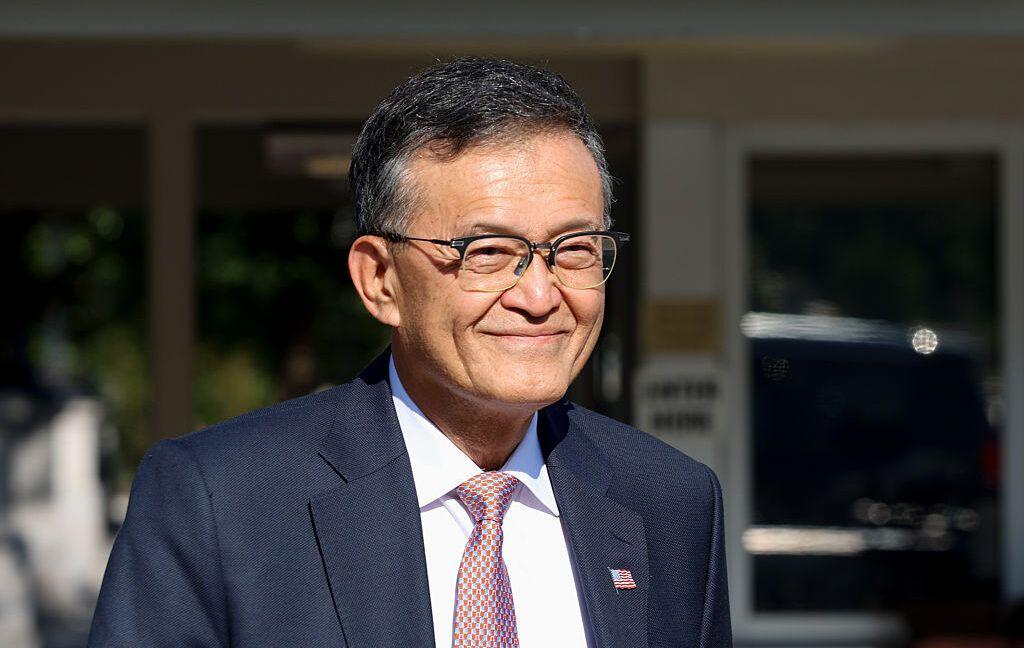National Security Experts Urge Trump Administration to Reconsider Nvidia H20 Chip Exports to China
2 Sources
2 Sources
[1]
Trump caving on Nvidia H20 export curbs may disrupt his bigger trade war
The next front in Donald Trump's trade war will be chip tariffs -- which could come by next month -- but national security experts are warning that the president may have already made a huge misstep that threatens to disrupt both US trade and national security. In a letter Monday to Department of Commerce Secretary Howard Lutnick, 20 policymakers and professionals with a background in national security policy urged Trump to reverse course and block exports of Nvidia's H20 chips to China. In April, the Trump administration decided against imposing additional export curbs on H20 chips after Nvidia CEO Jensen Huang paid $1 million for a seat at a Mar-a-Lago dinner, NPR reported. Apparently, Nvidia's promise to invest $500 billion in AI data centers helped persuade Trump to change course, as did the terms of a temporary truce with China, in which the US promised to halt H20 chip controls in exchange for China restoring imports of rare earth minerals into the US. In their letter, national security experts expressed "deep concern" that Trump may not have considered how Nvidia's H20 chips could endanger the US military's "edge in artificial intelligence" while serving as a "potent accelerator of China's frontier AI capabilities." While these chips can't be used for AI training like the Blackwell and H100 chips still restricted by export curbs, they're "optimized for inference, the process responsible for the dramatic capabilities gains made by the latest generation of frontier AI reasoning models," experts warned. Most likely, China will use the chips for AI models deployed by its military to "enable autonomous weapons systems, intelligence surveillance platforms, and rapid advances in battlefield decision-making," experts said. In that way, "by supplying China with these chips, we are fueling the very infrastructure that will be used to modernize and expand the Chinese military," they warned. The Trump administration is notably investigating how chip tariffs and imports could harm national security, with a report due out in two weeks, Lutnick announced today. That report will supposedly help Trump determine if relying too much on other countries for chips poses a national security threat.
[2]
20 national security experts urge Trump administration to restrict Nvidia H20 sales to China | TechCrunch
Not everyone is happy that the Trump administration gave Nvidia the green light to start selling its H20 advanced AI chips in China again. A group of 20 national security experts and former government officials wrote a letter to the U.S. Department of Commerce Secretary Howard Lutnick on Monday urging the Trump administration to reverse its recent decision to let Nvidia resume selling its H20 AI chips in China. The letter called the Trump administration's recent decision a "strategic misstep" that will have detrimental effects on the U.S.'s AI "edge" for both military and civilian use cases. The letter specifically called out H20's AI inference, the process of using a trained AI model to make decisions on unseen data. "The H20 is a potent accelerator of China's frontier AI capabilities, not an outdated AI chip," the letter stated. "Designed specifically to work around export control thresholds, the H20 is optimized for inference, the process responsible for the dramatic capabilities gains made by the latest generation of frontier AI reasoning models. For inference tasks, the H20 outperforms even the H100, an AI chip this administration has restricted access to due to its advanced capabilities." The letter also claimed that selling the H20 chips in China will worsen the existing AI chip bottleneck in the U.S.; that these chips could be used to support China's military; and that this decision will weaken overall chip export controls. "The decision to ban H20 exports earlier this year was the right one," the letter said. "We ask you to stand by that principle and continue blocking the sale of advanced AI chips to China as America works to maintain its technological edge. This is not a question of trade. It is a question of national security. The letter's signatories include Matt Pottinger, the former deputy national security adviser during Trump's first term; Stewart Baker, the former assistant secretary of Homeland Security under George W. Bush; and David Feith, a former member of the National Security Council, among others. This letter comes two weeks after the DOC gave Nvidia the green light to start selling its AI chips in China again in relation to ongoing trade discussions with China regarding rare earth elements. At the time, Lutnick tried to downplay the decision and said Nvidia's H20 was the company's "fourth best" AI chip. Last week, the Trump administration unveiled its AI Action Plan, which highlighted the need for U.S. AI chip export restrictions but was light on the details of what those export controls would look like.
Share
Share
Copy Link
A group of 20 national security experts have written a letter to the U.S. Department of Commerce, urging the Trump administration to reverse its decision on allowing Nvidia to sell H20 AI chips to China, citing potential threats to U.S. national security and AI technological edge.
National Security Concerns Over Nvidia H20 Chip Exports
A group of 20 national security experts and former government officials have penned a letter to U.S. Department of Commerce Secretary Howard Lutnick, urging the Trump administration to reconsider its recent decision to allow Nvidia to sell its H20 AI chips to China
1
2
. This move has sparked a heated debate about the balance between trade relations and national security concerns in the rapidly evolving field of artificial intelligence.Trump's Decision and Its Implications

Source: Ars Technica
In April, the Trump administration decided against imposing additional export curbs on H20 chips, reportedly after Nvidia CEO Jensen Huang paid $1 million for a seat at a Mar-a-Lago dinner
1
. This decision was influenced by Nvidia's promise to invest $500 billion in AI data centers and a temporary truce with China, which involved the US halting H20 chip controls in exchange for China restoring imports of rare earth minerals1
.The H20 Chip Controversy
The national security experts expressed "deep concern" about the potential consequences of allowing H20 chip exports to China. While these chips cannot be used for AI training like the more advanced Blackwell and H100 chips (which remain restricted), they are optimized for inference - a crucial process in the latest generation of AI reasoning models
1
2
.The letter emphasized that the H20 is not an outdated AI chip, but rather a "potent accelerator of China's frontier AI capabilities"
2
. For inference tasks, the H20 reportedly outperforms even the restricted H100 chip, making it a valuable asset for advanced AI applications2
.Military and National Security Implications

Source: TechCrunch
Experts warn that China could potentially use these chips to enhance its military capabilities, including:
- Enabling autonomous weapons systems
- Improving intelligence surveillance platforms
- Advancing battlefield decision-making processes
1
The letter argues that by supplying China with H20 chips, the U.S. is "fueling the very infrastructure that will be used to modernize and expand the Chinese military"
1
. This could potentially erode the U.S. military's edge in artificial intelligence technologies.Related Stories
Broader Impact on U.S. AI Industry and Export Controls
The national security experts also raised concerns about the broader implications of this decision:
- Worsening the existing AI chip bottleneck in the U.S.
- Potentially weakening overall chip export controls
- Compromising America's technological edge in both military and civilian AI applications
2
Trump Administration's Stance and Future Plans
The Trump administration is currently investigating how chip tariffs and imports could affect national security, with a report due in two weeks
1
. This report is expected to help determine if relying too heavily on other countries for chips poses a national security threat.Last week, the administration unveiled its AI Action Plan, which highlighted the need for U.S. AI chip export restrictions but lacked specific details on implementation
2
. The ongoing debate surrounding the H20 chip exports underscores the complex interplay between trade policy, technological advancement, and national security in the era of artificial intelligence.References
Summarized by
Navi
Related Stories
Trump Administration's Reversal on China Chip Ban Sparks Bipartisan Backlash
29 Jul 2025•Policy and Regulation

Trump Administration Considers New Restrictions on Nvidia AI Chip Exports Amid DeepSeek Concerns
31 Jan 2025•Policy and Regulation

U.S. Imposes 15% Revenue Share on Nvidia and AMD's AI Chip Sales to China Amid Escalating Tech Rivalry
05 Aug 2025•Policy and Regulation

Recent Highlights
1
ByteDance Faces Hollywood Backlash After Seedance 2.0 Creates Unauthorized Celebrity Deepfakes
Technology

2
Microsoft AI chief predicts artificial intelligence will automate most white-collar jobs in 18 months
Business and Economy

3
Google reports state-sponsored hackers exploit Gemini AI across all stages of cyberattacks
Technology





